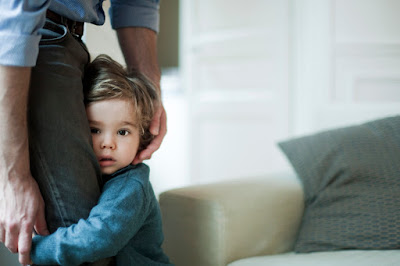 |
| Should I help my 3 years old's confidence? |
Sometimes we might just think about shyness as an adverse quality, but there are advantages to being careful also. Truthfully, society requires the equilibrium of individuals appropriate throughout the 'pep' range, from those who are very reluctant or scheduled to those that are really ahead, brash and socially engaged.
Like many parents, you seem like you are concerned that your child's shyness is holding him back from fully experiencing life and also doing points he might or else take pleasure in. This is just one of the really precise disadvantages of shyness; that the stress and anxieties a kid feels might prevent them from doing things, or even lead them to proactively avoid doing points.
Introversion and shyness are different. An introverted youngster may be alone due to the fact that they want to be (they appreciate their own company), whereas a reluctant kid may be alone due to the fact that they are as well afraid, or feel too shy, to be with other youngsters.
If we return to the principle of the 'slow to warm up' kid, however, it provides us a hint regarding ways to assist timid kids. Give them time and also experience in those situations where they might feel shy, or may feel a bit nervous so that they could discover that they could deal and that they have the ability to blend as well as enjoy.
As a parent, our all-natural protectiveness might lead us to swoop in as well as either take control of the 'hanging out' by organizing every little thing to permit our youngster to fit in, or by removing them due to the fact that they appear so unpleasant.
But, we have to keep back from these instinctive reactions. Instead we have to let our children sit with the feasible discomfort, without motivating them, or promoting them to avoid it. That is not to claim that we need to leave our children in distress. We do not. But we do should give our kids the chance, or the opportunity, to attempt to cope with the social circumstance.
Normally, we do not want the pain to be frustrating, so it is fine to still be an encouraging presence behind-the-scenes. That way we can emotionally available to them if their distress increases.
In some cases it could help kids to feel like they have 1 or 2 kids in a group that can be a social support to them, or be a little 'social glue' to facilitate them learning more about other kids.
Your son, for instance, has no worry making close friends, as he has established relationships in Montessori, but he might have discovered the experience hard, or may require great deals of time as well as assistance to do so.
So, preparing one-on-one playdays with a child who is due to be at a birthday celebration party that your boy has actually been invited to, might give him the preliminary link he has to branch off a little bit broader.
Likewise you might discover that if you make an early introduction to one child at the occasion, that you really feel will certainly be open to including your kid, it might make it much easier for him to feel comfortable sufficient to involve with the other children.
Also reaching a place early, before a huge group is formed, may additionally permit him to develop sufficient of a link to a kid, or children, that he feels "shielded" from the busy-ness, undoubtedly whirling-dervishness, that typically defines a group of three year olds!
It seems like you are locating an excellent equilibrium of remaining to bring him to the events, yet being understanding that he just requires a little time and room to discover his feet. Your confidence in his ability to be fine in these situations might go a long way to urging his confidence.
No comments:
Post a Comment